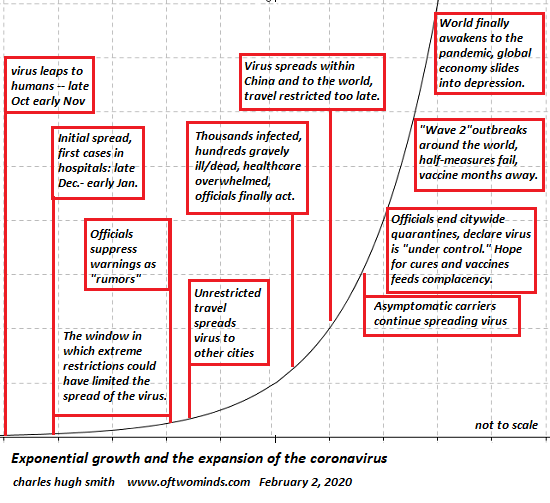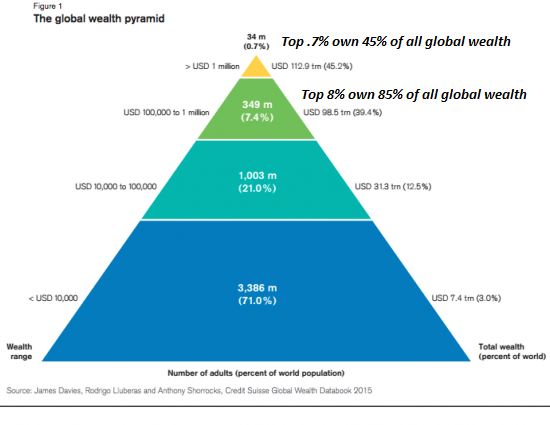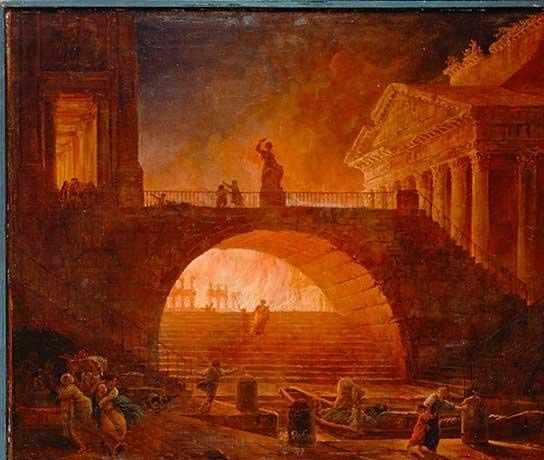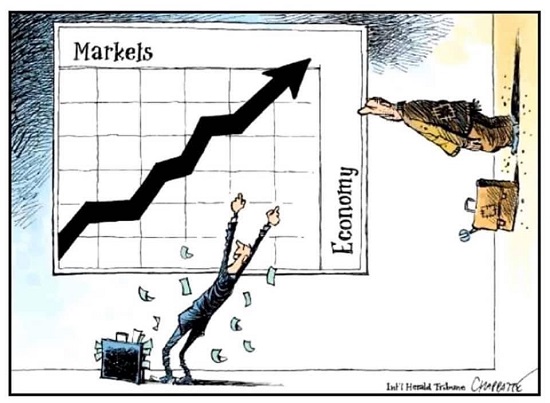Things Change October 2, 2020 “Doing more of what’s hollowed out our economy and society” is a slippery path to ruin. Things change, supposedly immutable systems crumble and delusions die. That’s the lay of the land in the The Empire of Uncertainty I described yesterday. It’s difficult not to be reminded of the Antonine Plague of 165 AD that crippled the Western Roman Empire. The exact nature of the virus that struck down as many as one-third of the Empire’s residents is unknown; it’s thought to be an early variant of measles or smallpox. One would have guessed the populace achieved “herd immunity” after the first wave devastated the Empire, but that’s not what happened. The plague continued until 180 AD, and recurred a decade later, continuing to sow misery
Topics:
Charles Hugh Smith considers the following as important: 5.) Charles Hugh Smith, 5) Global Macro, Featured, newsletter
This could be interesting, too:
Nachrichten Ticker - www.finanzen.ch writes Die Performance der Kryptowährungen in KW 9: Das hat sich bei Bitcoin, Ether & Co. getan
Nachrichten Ticker - www.finanzen.ch writes Wer verbirgt sich hinter der Ethereum-Technologie?
Martin Hartmann writes Eine Analyse nach den Lehren von Milton Friedman
Marc Chandler writes March 2025 Monthly
Things Change
October 2, 2020
“Doing more of what’s hollowed out our economy and society” is a slippery path to ruin.
Things change, supposedly immutable systems crumble and delusions die. That’s the lay of the land in the The Empire of Uncertainty I described yesterday.
It’s difficult not to be reminded of the Antonine Plague of 165 AD that crippled the Western Roman Empire. The exact nature of the virus that struck down as many as one-third of the Empire’s residents is unknown; it’s thought to be an early variant of measles or smallpox.
One would have guessed the populace achieved “herd immunity” after the first wave devastated the Empire, but that’s not what happened. The plague continued until 180 AD, and recurred a decade later, continuing to sow misery and economic costs.
Valiant co-Emperor Verus fell ill and died in 169 AD, leaving his adopted brother Marcus Aurelius to struggle on as the sole leader of Rome’s efforts to repel invasions and maintain its defenses.
What’s different now is the extreme fragility of America’s financial and social orders. The apparent strength of the economy rests on increasing extremes of financialization and its corrupting fruit, soaring wealth/power inequality.
“The market” would have us believe corporations profiting from “engagement” (i.e. divisiveness and turmoil) are the most valuable assets in the land. If the Empire’s most precious assets are the derangements of “engagement,” then what else do we need to know about its advanced fragility?
If data stripmined from debt-dependent consumers is the most profitable resource in the nation, that’s a definition of distortion and delusion. It’s almost as if the American economy and social order have discounted the material world, as if financial leverage, data-mining and “engagement” are all that really matters and the material world will magically take care of itself.
Just as we can’t eat an iPad, we also can’t eat “engagement” or burn data to keep warm or use leverage and other tricks to conjure up productive wealth. The rising tide of dysfunction and incompetence in America’s institutions can be monitored by tracking how functionaries are rewarded for navigating the bureaucratic thickets and padding budgets, not for achieving the institution’s purpose.
 The Crisis of Competence is increasingly visible, but delusions of grandeur still hold. As everyday life decays into developed-world status, we’re told the problem is the hospital or university or corporation no longer has sufficient revenues to cover its bloated expenses, and so the nation must borrow additional trillions to bail out virtually every entity in the land.
The Crisis of Competence is increasingly visible, but delusions of grandeur still hold. As everyday life decays into developed-world status, we’re told the problem is the hospital or university or corporation no longer has sufficient revenues to cover its bloated expenses, and so the nation must borrow additional trillions to bail out virtually every entity in the land.
The concept of financial viability without access to ever-expanding debt has been lost, and with that lost, resilience and competence have also been lost. The status quo’s “solutions” are nothing more than doing more of what’s hollowed out our economy and society.
Things change. We can’t freeze change in its tracks, we can only respond: either competently and effectively, fully aware of our limitations and the risks of relying on debt to paper over our weaknesses, or incompetently, clinging on to delusions of magical thinking, misguided faith in failed leadership and institutions and seeing debt and money created out of thin air as our savior rather than the source of our downfall.
Here’s the projection I made on February 2, 2020, a week after Covid-19 was finally acknowledged by authorities as a global threat. By my reckoning, this projection is still on track, and we’re approaching “Wave 2 outbreaks around the world, half-measures fail, vaccine months away.”
“World finally awakens to the pandemic, global economy slides into depression” is on tap for 2021. Things change. Doing more of what’s hollowed out our economy and society is a slippery path to ruin.
Tags: Featured,newsletter







